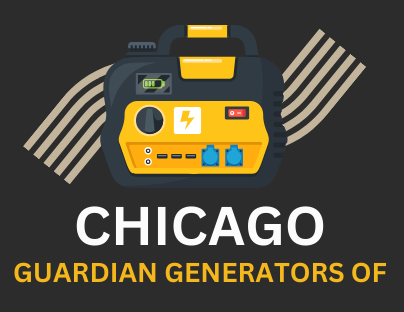Whole House Generators in Cicero IL
A whole house generator is a backup power system designed to provide electricity to your entire home during a power outage. Unlike portable generators that power only essential appliances, a whole house generator is permanently installed outside your home and is connected to your electrical system. It automatically starts when there is a power failure and shuts off when the power is restored.
Importance of Having a Whole House Generator
Having a whole house generator offers several benefits:
- Uninterrupted Power Supply: It ensures that you have a continuous power supply during outages, which is essential for maintaining comfort and convenience.
- Protection of Appliances: It helps protect your home’s electrical systems and appliances from potential damage caused by power surges or abrupt shutdowns.
- Safety: It provides lighting and heating or cooling, which are critical for safety and well-being during an outage.
- Increased Property Value: A whole house generator can enhance the value of your property by adding a desirable feature that appeals to potential buyers.
Types of Whole House Generators
There are mainly two types of whole house generators:
- Standby Generators: These are permanently installed units that start automatically when the power goes out. They run on natural gas or propane and can provide power to your entire home or specific circuits.
- Portable Generators: While less common for whole house applications, portable generators can be used with transfer switches to power selected circuits in your home. They require manual setup and refueling.

Key Considerations When Choosing a Whole House Generator
Selecting the right generator involves several factors:
- Power Needs: Calculate the total wattage required to power your home. This includes essential appliances, heating or cooling systems, and any other equipment you want to keep running.
- Fuel Type: Decide between natural gas, propane, or diesel, based on availability, cost, and convenience.
- Installation Location: Choose a suitable location for the generator that meets ventilation and safety requirements.
- Noise Levels: Consider noise levels, especially if you have close neighbors. Some generators are designed to operate more quietly than others.
- Budget: Balance your needs with your budget. Higher capacity and features can increase costs, but they may offer better performance and reliability.
Installation Process
The installation of a whole house generator involves several steps:
- Site Assessment: A professional will assess your property to determine the optimal location for the generator and the best way to connect it to your electrical system.
- Permit and Inspection: Obtain necessary permits and schedule inspections as required by local regulations.
- Generator Placement: The generator is installed on a concrete pad or another stable surface.
- Connection: Electricians will connect the generator to your home’s electrical system using a transfer switch, ensuring a seamless transition during outages.
- Testing: Once installed, the system is thoroughly tested to ensure it operates correctly.
Maintenance Tips for Longevity
To keep your whole house generator in optimal condition:
- Regular Inspections: Have your generator inspected regularly by a professional to check for any issues.
- Routine Maintenance: Follow the manufacturer’s maintenance schedule, including oil changes, air filter replacements, and battery checks.
- Exercise the Generator: Run the generator periodically, even when not in use, to ensure it remains functional.
- Cleanliness: Keep the area around the generator clean and free of debris.
Cost Considerations
The cost of a whole house generator varies depending on several factors:
- Generator Size and Capacity: Larger generators with higher capacities typically cost more.
- Fuel Type: Different fuel types have varying costs and availability.
- Installation: Professional installation, including electrical work and permits, adds to the overall cost.
- Maintenance: Factor in the cost of routine maintenance and repairs over the lifespan of the generator.
Safety Precautions
Ensuring safety with your generator includes:
- Proper Installation: Always have a qualified professional install the generator to comply with safety standards.
- Ventilation: Ensure proper ventilation to prevent carbon monoxide buildup. Generators should be placed outdoors in well-ventilated areas.
- Avoiding Overloading: Do not exceed the generator’s capacity to prevent overheating and damage.
- Regular Checks: Periodically inspect the generator for any signs of wear or malfunction.
What We Offer
We provide comprehensive services for whole house generators, including:
- Residential Generators
- Commercial Generators
- Portable Generators
- Electric Generators
- Propane Generators
- Solar Generators
- Generator Repairs
- Generator Maintenance
- Generator Parts
If you’re ready to invest in a whole house generator in Cicero, IL, or need more information, contact us today. Our team is here to help you with all your generator needs and ensure your home stays powered and protected.
